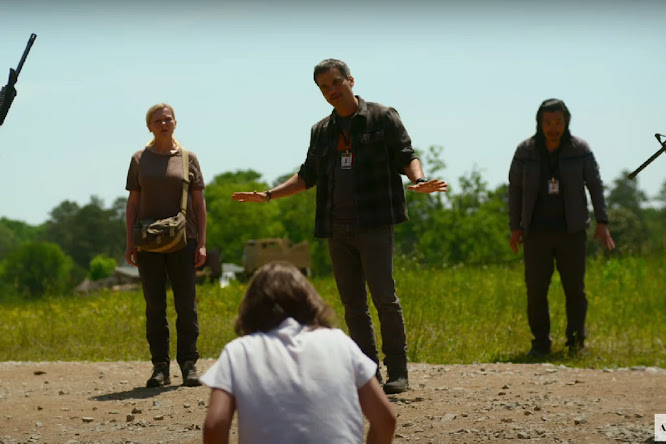 |
| Look! Someone once offered you to see Pietro Francisci's Hercules Unchained in a cinema for just 10 cents! ... boy, those must have been the days! |
Here's a movie for you:
Hercules goes on a diplomatic adventure with his pal Ulysses and wife Iole and quickly lands in deep trouble, as he drinks from a well of forgetfulness and therefore forgets everything the mission and himself are all about!
Director Pietro Francisci (Hercules/La Fatiche de Ercole (1958)) has a long list of tall adventure films to his name, and he is probably a good exponent for the kind of filmmaker that Italian cinema's prominent newcomers at the time, like Luchino Visconti and Roberto Rosselini, rebelled against in their neo-realist films of the 40s and early 50s. Those films are generally better than this kind, just to make that clear. But here we are, still, with good old Hercules, undoubtedly the silver screen's favorite Greek god. This is the second of 19 (!) Italian Hercules movies made from 1958-65, which are part of the Italian peplum tradition. - The genre, also known as the swords-and-sandal movie, derives its name from the scant tunic-style Greek/Roman garment often worn by the heroes of the films.
Hercules Unchained is good fun, if you have an interest in film history and/or can enjoy a big costume adventure film that obviously doesn't compare to what is possible in the genre today in terms of scope or effects.
There is in its very beginning a very bizarre song sung by Hercules' wife Iole, (Sylva Koscina (The House of Exorcism (1975))), who obviously just lip-syncs some other singer with a much deeper voice's recording. It looks bizarre, and Koscina's mouthing is very off.
The script, by Ennio De Concini (Taras Bulba, il Cosacco (1963)) and Francisci, based on two old-Greek plays based on Greek myths and Francisci's story idea, and tone of the film has the flexibility and predictability of a wood log, but Hercules Unchained still manages to stay entertaining; through its many oiled bodies, (Steve Reeves (War of the Trojans/La Leggenda di Enea (1962)) playing Hercules is in quite spectacular shape himself), homo-erotic scenes of massaging, long dances and fights, - even a few quite well-made ones with live tigers, - and also simply due to the pompous scale of it all. The costumes, make-up and hair of Unchained are all very over-the-top and, in effect, very Italian.
If you can handle lines like, "By the way, what is my name?" (coming, of course, from the amnesia-stricken title hero), and you generally lust for myths and corny adventure, Hercules Unchained will not disappoint you.
The film's cinematography, some effects and second unit directing work was done by Mario Bava (Black Sabbath/I Tre Volti Della Paura (1963), director), who soon after became the 'Baron of Blood' and one of the great Italian horror filmmakers of all time.
The Eastman colors of Unchained look vibrant and alive. - Unfortunately, the version I saw was not restored, and I am not sure that a better version even exists.
In probably the film's best fight scene, Hercules battles Anteo the giant played by Primo Carnera (Mighty Joe Young (1949)), the real life heavy weight boxing champ, in his last of 21 short, TV and film acting credits.
Reeves has later told of his experience with director Francisci that in one instance, where Reeves refused to swing the apparently real chains (!) hard enough over his enemies so as not to hurt them, Francisi had said; "If they don't get hurt, they don't get paid!" - Not surprisingly, hunky Reeves didn't do any more Hercules films after this one.
In lieu of a proper trailer, which isn't currently on Youtube, watch a wonderful excerpt from the movie here
Cost: Unknown
Box office: 2.5 mil. $ (North America only)
= Uncertain (but likely a big or huge hit)
[Hercules Unchained was released 14 February (Italy) and runs 97 minutes. Shooting took place at the Titanus Appia Studios in Rome, Italy. The film was almost certainly a big hit. Besides its substantial American run, Unchained was also the third biggest film at the British box office in 1960. Film critic Howard Hughes, who has chronicled Italian cinema in his book Cinema Italiano - The Complete Guide From Classics to Cult (2011), has stated that this film is better than Francisci's predecessor from the year before, because it has a better script, "punchier action" and more convincing acting. Francisci returned with Siege of Syracuse/L'Assedio di Siracusa (1960). Reeves returned in The White Warrior/Agi Murad il Diavolo Bianco (1959). Hercules Unchained has a 2.6/5 audience score, based on 1,737 ratings on Rotten Tomatoes.]
Greek myths in movies, - what is your favorite?
What do you think of Hercules Unchained?
If you locate a restored version of Hercules Unchained, shoot me a comment with a link to it, - thanks!



No comments:
Post a Comment